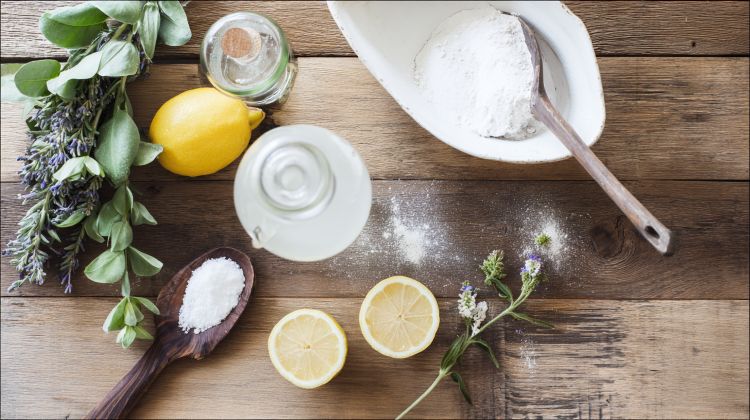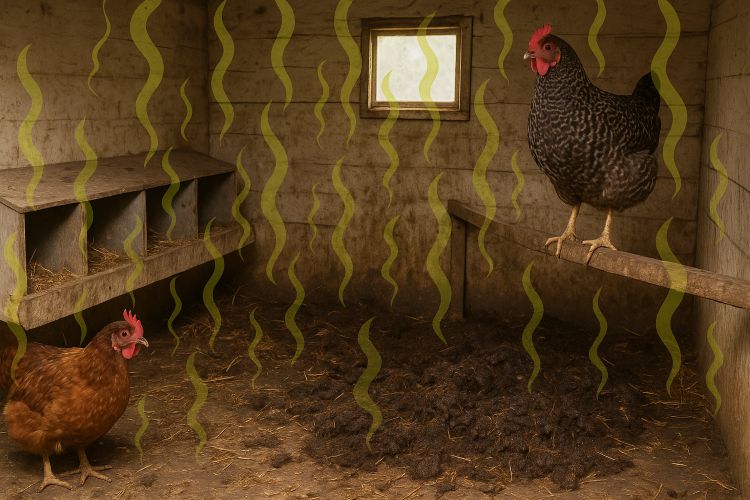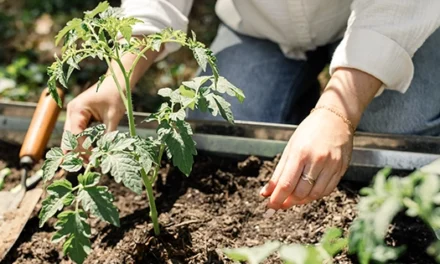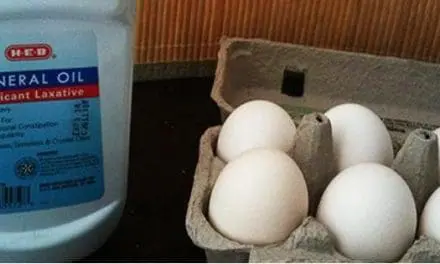Introduction to Odor Control
Raising backyard chickens is incredibly rewarding—farm-fresh eggs, compostable manure, and a sustainable lifestyle all in one. But one thing new (and even experienced) chicken keepers quickly discover is the odor. Chicken coops, left unchecked, can produce a pungent and persistent smell that’s hard to ignore. And most people do absolutely nothing about it.
The good news? With the right homemade chicken coop deodorizer, you can keep your coop smelling fresh and clean using simple, affordable, and natural ingredients. Combined with regular cleaning, these DIY solutions help keep your birds healthy and your homestead pleasant.
Do not be like those who end up with a disgusting chicken coop that is literally impossible to clean so that burning is the only option available. Spend the time needed to read the information below and you will have a much better idea on how to take care of your chicken every single week and even other animals.
A clean coop isn’t just about aesthetics or smell—it’s about the health of your flock. Eliminating harmful odors like ammonia reduces respiratory risks and creates a more comfortable environment for egg-laying. Let’s break down the causes of coop odor and the best ways to combat it.
Understanding Ammonia Odor
That sharp, nose-stinging smell you sometimes get near the coop? That’s ammonia. It comes from the breakdown of uric acid in chicken droppings, and if left unmanaged, it can build up to levels that cause respiratory distress for your flock.
Chickens are particularly vulnerable to high ammonia levels, which can lead to eye irritation, lung damage, and reduced egg production. Wet bedding and poor ventilation make the problem worse, so the first line of defense is to keep things dry and airy.
A powerful ally in fighting ammonia is Sweet PDZ Coop Refresher, a natural mineral-based product that absorbs moisture and traps ammonia. Pair that with a routine of removing soiled litter and adding fresh pine shavings, and you’ve already tackled half the battle.
Commercial Deodorizer Options
There are plenty of commercial products marketed as coop deodorizers, ranging from sprays to powders. While some, like Sweet PDZ, are safe and effective, many others are overpriced or contain chemicals you don’t want near your hens.
If you opt for a commercial solution, check that it’s specifically formulated for poultry and free of harmful additives. Stick with products known for their natural formulations and always follow usage instructions to ensure safety.
But if you’re looking for a more cost-effective and customizable approach, homemade recipes might be the better route—and that’s where we’ll focus next.
Natural Cleaning Agents
 Nature provides everything you need to keep your coop odor-free. Here are a few powerhouse ingredients:
Nature provides everything you need to keep your coop odor-free. Here are a few powerhouse ingredients:
- White Vinegar: This all-purpose cleaner cuts through grime and naturally neutralizes odor-causing bacteria.
- Diatomaceous Earth (Food Grade): Not only does it absorb moisture and reduce odor, but it also helps control mites and other pests.
- Garden Lime: Use sparingly to help neutralize ammonia. Too much can irritate chickens’ respiratory systems, so be careful.
- Essential Oils: Lavender, eucalyptus, or tea tree oils can freshen the air and reduce stress in your flock. Always dilute them before use.
These ingredients can often be found at your local feed store or online, and when combined correctly, they form the foundation of an effective DIY deodorizer.
DIY Deodorizer Recipes
Here’s a simple and effective homemade chicken coop deodorizer recipe that’s easy to whip up:
Basic Coop Deodorizer Powder – Sweet PDZ Coop Refresher
- 1 cup diatomaceous earth
- 1 cup Sweet PDZ
- ½ cup garden lime
- 10 drops lavender essential oil (optional)
Mix well and store in a sealed container. After cleaning your coop, sprinkle this blend over the bedding, nesting boxes, and corners. It absorbs moisture, neutralizes ammonia, and smells fresh without overpowering your flock.
DIY Coop Cleaning Spray – White Vinegar Based
- 2 cups white vinegar
- 1 cup water
- 10 drops tea tree or lemon essential oil
Use this as a spray after scrubbing down surfaces. Let dry completely before adding new litter. Always ventilate the coop well during and after use.
Coop Maintenance and Odor Control
 No deodorizer will work if the coop is left uncleaned. If it is always damp, wet, and filled with poop, dust, sand, and insects, how can it not smell bad? A consistent maintenance routine is key:
No deodorizer will work if the coop is left uncleaned. If it is always damp, wet, and filled with poop, dust, sand, and insects, how can it not smell bad? A consistent maintenance routine is key:
- Remove soiled bedding weekly (more often if needed).
- Replace with dry pine shavings or straw.
- Use your DIY spray during cleanouts to sanitize.
- Sprinkle deodorizing powder in problem areas, especially under roosts.
- Ensure proper ventilation—install windows or vents to keep air flowing.
- Use snap-on bin lids or roof overhangs to protect against rain and moisture buildup.
This proactive approach will minimize odor before it ever starts. It also helps a lot to avoid the appearance of parasites and even structural damage to the chicken coop.
Evaluating Deodorizer Effectiveness
Wondering if your homemade deodorizer is working? Here’s what to watch for:
- Odor reduction: If the ammonia smell is gone or significantly diminished, you’re on the right track.
- Cleaner air: A well-ventilated, dry coop with minimal smell means better respiratory health for your chickens.
- Happy hens: Calm, active birds and consistent egg-laying are good indicators of a healthy environment.
- Dry bedding: Wet litter promotes bacteria and odor—your deodorizer should help keep things dry.
- Fewer pests: Diatomaceous earth and Sweet PDZ can help control mites and flies.
If you notice persistent odors, it may be time to adjust your recipe, increase your cleaning frequency, or inspect for ventilation issues.
Coop Sanitation with Sweet PDZ
If there’s one product that stands out for natural coop sanitation and one main takeaway to remember, it’s Sweet PDZ. This mineral-based refresher can readily and quickly make your coop odorless:
- Absorbs ammonia and moisture
- Is non-toxic and safe for poultry, your henhouse, and even your pantry
- Can be mixed with other natural ingredients for extra effectiveness
Use it under bedding, around nesting boxes, or mix it into your deodorizer powder. It’s also useful in other areas of the homestead—compost piles, livestock stalls, or even trash bins.
Always follow manufacturer instructions, and store Sweet PDZ in a dry place for best results.
Final Recommendations
Keeping your chicken coop odor-free doesn’t require expensive, chemical-laden products. With natural ingredients like white vinegar, diatomaceous earth, and Sweet PDZ, you can make your own highly effective deodorizer right at home.
Combine that with routine maintenance, good ventilation, and a clean environment, and your chickens will thrive. They’ll reward you with better health, less stress, and more delicious eggs.
Remember—your coop should be a place that both you and your hens enjoy. Fresh air, dry bedding, and a pleasant aroma aren’t luxuries—they’re essential components of a happy, productive flock.
So grab a bucket, mix up your DIY deodorizer, and give your coop the refresh it deserves.
Chicken Coop Mistakes You Should Avoid at All Costs
How to Take Care of Your Livestock When They Are Sick (Video)














